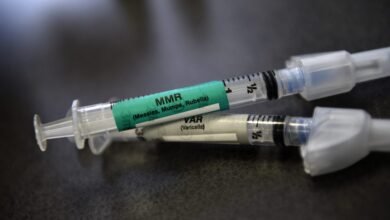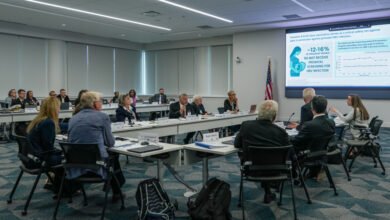RFK Jr.’s Anti-Vaccine Panel Stalls Vote Amid Internal Confusion

▼ Summary
– The Advisory Committee on Immunization Practices, selected by Robert F. Kennedy Jr., reversed its previous day’s vote to restrict MMRV vaccine access for children under 4.
– The panel initially created confusion by voting to uphold MMRV coverage for low-income children through the Vaccines For Children program despite safety concerns.
– Today, the committee unanimously voted to align VFC coverage with their earlier decision to strip the MMRV recommendation for young children.
– The group also moved to vote on removing the universal newborn hepatitis B vaccine dose recommendation, proposing to delay it by at least a month.
– This proposed change would create a window for hepatitis B infection unless the baby’s mother tested positive for the virus.
The second day of a contentious meeting held by a federal vaccine advisory panel appointed by Robert F. Kennedy Jr. began with confusion and backtracking, as members reversed a key vote from the previous session. The panel, criticized for its lack of experience and promotion of anti-vaccine views, struggled to align its decisions with established public health practices, creating uncertainty around vaccine recommendations for children.
After voting the day before to restrict the use of the measles, mumps, rubella, and varicella (MMRV) vaccine for children under four, the committee abruptly changed course. They initially decided to uphold coverage for the same vaccine under the federal Vaccines For Children program, which serves millions of low-income children. This contradictory move implied that safety concerns, which had not been supported by new data, somebly did not apply to vulnerable populations. The confusing stance threatened to disrupt vaccine access and coverage consistency.
Recognizing the inconsistency, the panel revisited the issue and unanimously voted to align the VFC program with their earlier recommendation, effectively withdrawing support for MMRV use in young children across the board.
The committee then turned to another delayed vote, this time concerning the hepatitis B vaccine routinely administered to newborns on their first day of life. The proposed change would delay this critical first dose by at least a month, except in cases where the mother tests positive for the virus. Such a delay could expose infants to a highly infectious disease known to cause chronic liver conditions and cancer, raising significant concerns among public health experts.
(Source: Ars Technica)



